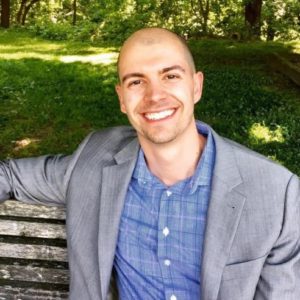Dagomar Degroot’s Reflections
Posted in Reflections | Tagged Reflections

Dagomar Degroot
Associate Professor
History
What is your connection to sustainability or the environmental movement? This can be on a personal or professional level.
I am an associate professor of environmental history in Georgetown’s department of history. In my writing and research, I work with scientists to uncover past climate changes. I then explore how societies survived those changes – and sometimes thrived because of them. In the classroom, I lead students through histories of both crisis and resilience to climate change. I communicate the lessons I’ve learned from this work to a broad audience, both in popular publications and in online resources I’ve found.
What is an action you are taking to improve the environment, whether in your personal or professional life?
I meet with corporate and political leaders to urge action on human-caused climate change. I introduce students to the science of natural and human-caused climate changes, and work with them to brainstorm how best to motivate political solutions. To a popular audience of thousands – perhaps millions – I communicate both the urgency of the climate crisis and the potential of studying the past to find solutions. Research shows that when people learn about climate change, they are much more likely to lower their carbon emissions – and telling stories about the past is a great way to inspire that learning. And at home, my partner and I work hard to lower our family’s carbon emissions.
Do you have an environmental “fun fact” you would like to share? This can be an anecdote, something you’ve read, or anything else that feels important to you!
Anthropogenic warming is without precedent in the history of human civilization. Yet Earth’s climate has changed meaningfully over that history, and societies have struggled to cope. It may be that more societies successfully endured those changes than declined or collapsed because of them. This should give us hope for the future – if we’re willing to accept their lessons. On a less abstract level: my mind is always blown by the Pleistocene climate changes that our very distant (pre-historical) ancestors had to cope with. The changes could be every bit as big as the worst-case scenarios we imagine for the imminent future, and they unfolded in even less time. Wild! Of course, there were far fewer humans then than there are now, and we impose a great deal more pressure on Earth’s biosphere than just climate change.
Do you have a recommendation or piece of advice for Hoyas who wish to do more to help the planet?
I’ve found that many students don’t need advice from me; if anything, I could use their advice! Our students are wonderfully engaged on today’s most pressing issues, and determined to make the world a better place: it’s part of what makes Georgetown so special. But to those who do ask me for advice, I say: the crisis is real, but all hope is not lost. We have a remarkable opportunity now to forge a better world: one that is more equal and more sustainable, and more respectful of our place in the biosphere. So work hard, get politically engaged, and lower your carbon emissions!
